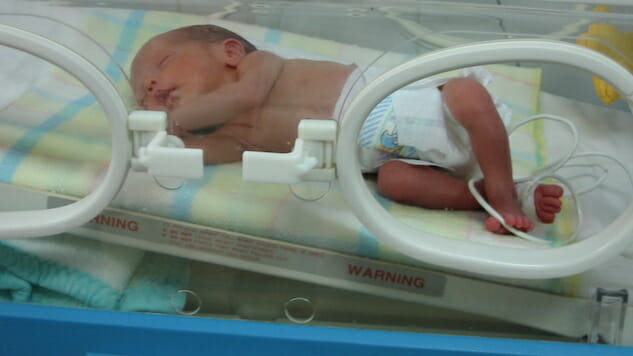An Artificial ‘Womb’ for Lambs Could Eventually Change How Doctors Manage Premature Births
Health News Birth
A temperature-controlled plastic “womb” filled with nutrients kept premature lambs alive for four weeks. This new system, called a “BioBag” by its developers, allowed the lamb fetuses to develop vital organs, boosting their survival rate.
Scientists are excited about this experiment, as it could severely affect the future of human premature births.
Being born prematurely is the most common cause of death among infants, and those who survive a premature birth often face lifelong disabilities due to having underdeveloped organs.
The advantage that these BioBags have over incubators is the fact that they are sealed and—if created correctly—completely sterile. This method could be a safer way for babies to continue to develop before being introduced into the outside world.
Scientists had to remake the placenta, which is a temporary organ that joins the mother to the fetus in order to transfer it oxygen and nutrients. To do so, the scientists connected the lamb fetus’ umbilical cord to a special oxygenator device.
A lamb’s gestational period is very similar to that of a human, which is why they were chosen for the experiment. The premature lambs in the study were equivalent in age to 23-week-old human infants.
All of the fetuses were removed from the mother ewe via C-section, and then placed in the BioBags. The lambs developed healthily and normally, and the oldest lamb has now lived for a full year.
Colin Duncan, a professor of reproductive medicine and science at the University of Edinburgh, U.K, said, “this study is a very important step forward. There are still huge challenges to refine the technique, to make good results more consistent and eventually to compare outcomes with current neonatal intensive care strategies.”
However, this treatment will require much more pre-clinical research and development before entering clinics.
Photo: César Rincón, CC-BY
Elizabeth Chambers is a health intern with Paste and a freelance writer based out of Athens, Georgia.